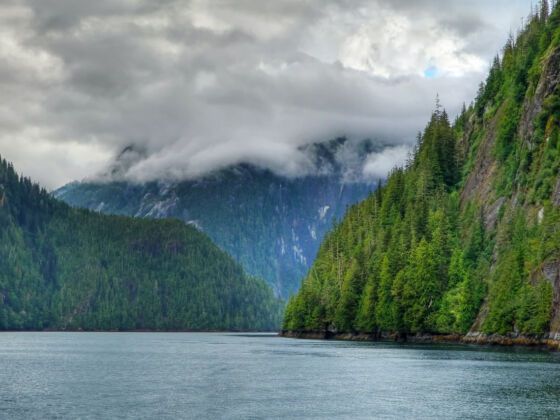The Trump administration is rolling back key environmental protections, allowing logging companies to build roads through more than nine million acres of Alaska’s untouched wilderness. Starting Thursday, it will be legal for loggers to cut and remove timber throughout the Tongass National Forest, which covers much of southeast Alaska.
It’s the largest national forest in the country, home to the native old-growth red and yellow cedar, Sitka spruce, and western hemlock. For nearly 20 years it’s been one of the world’s most intact temperate rainforests, and its trees — some up to a thousand years old — absorb far more carbon than any other national forest.
